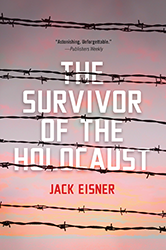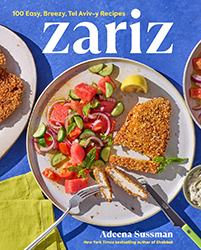This slim volume is a memorial to what was lost in the Holocaust. Just eight years old when the war ended, the author, who died in 2016, recounts her life as a little girl in the Warsaw Ghetto, followed by her time being hidden (in a dresser drawer) outside the ghetto by a Polish woman. When that became too dangerous, she was moved to a farm near Warsaw. She was also buried in a bombing and dug out by her father, and then, alongside her parents, she daringly escaped capture and walked east for a month toward the Russian front. After that, she was finally liberated.
Despite the pain and trauma she endured, the author, like so many survivors, made a life for herself. Yet these experiences stayed with her, buried for decades until, at the age of sixty-seven, she began to write them down.
Born Klara Alter, Thérèse (Terri) Masson composed her own Kaddish, at once prayer of mourning for her family and her testimony as a survivor. Because she was just a child at the time, her memoir is unconventional, consisting of memories that are impressionistic and sometimes vague and fragmentary. It is, as she phrased it, an “incomplete gallery” of long-suppressed recollections and emotions.
Masson interweaved her childhood memories with her reflections as an adult, analyzing the influence these early experiences had on her life and the person she became. In an effort to retrieve her “lost memories,” in 2004, Masson and her daughter, Simone, made the first of four trips to Poland. “We were searching for a lost world,” Masson explained. But it was gone. “The lamentable truth is that the cleansing of Poland is complete. The genocide was a success.” She felt herself a remnant of that lost world. Her daughter describes those trips to Poland as “harrowing journeys, yet deeply rewarding.”
Terri Masson left her Kaddish unfinished when she died. Her daughter has edited it and filled in numerous missing pieces, adding to it some of her own thoughts and feelings about her mother. She also includes recollections by Masson’s second husband, a number of family photos, and an essay by a Polish friend — all of which enhance the story of a remarkable woman who survived a genocide and, late in life, summoned the courage to recount everything she had faced.



